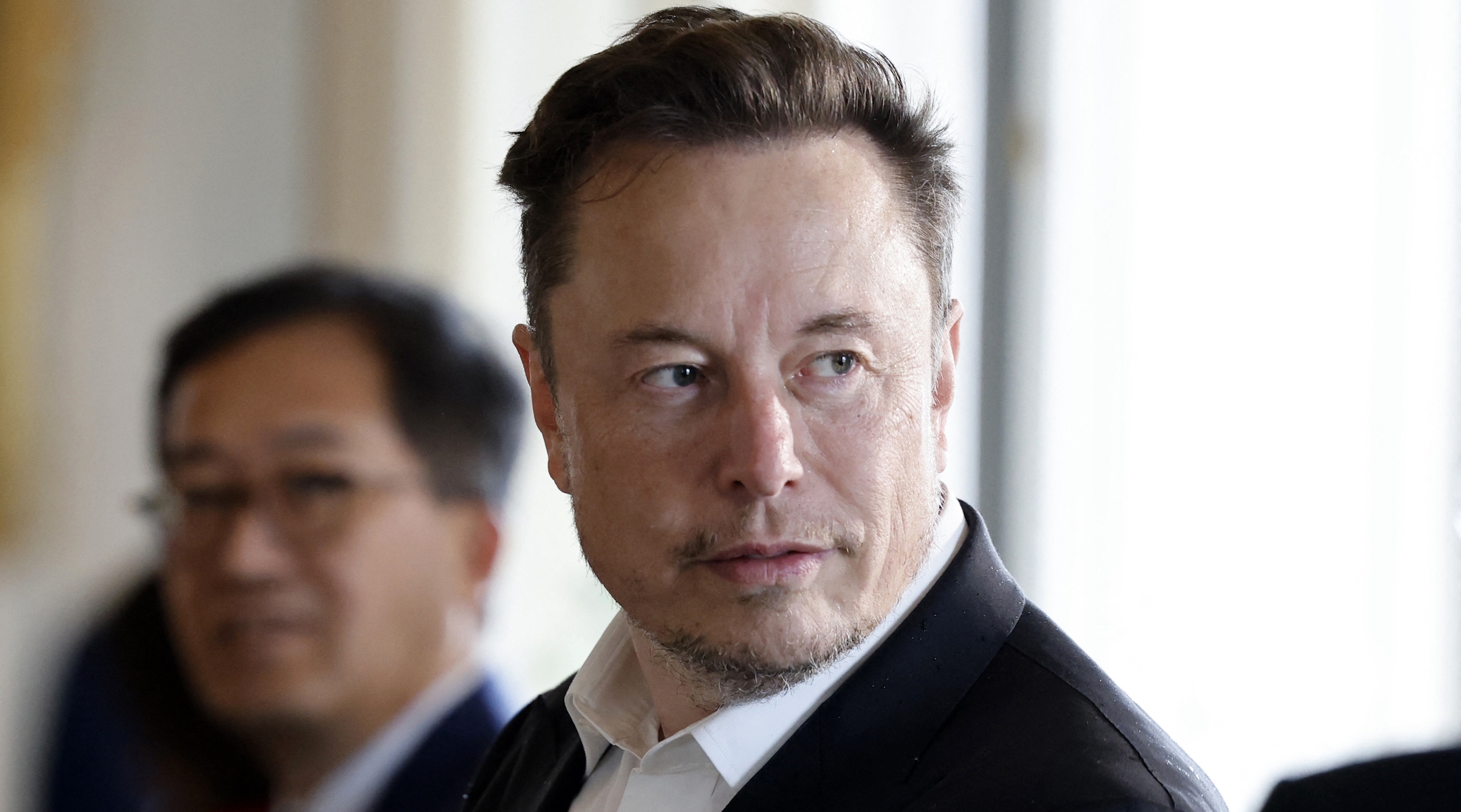After prodding from Elon Musk, ADL says South African ‘Kill the Boer’ song could be seen as ‘call for violence’
It’s the latest in an ongoing tiff between the ADL and the billionaire

Elon Musk endorsed an anti-ADL campaign on Twitter. Photo by Ludovic Marin/Pool/AFP via Getty Images
(JTA) — The Anti-Defamation League expressed concern about a South African song calling to “Kill the Boer” after Elon Musk repeatedly prodded the group to speak out — the latest in an ongoing tiff between the Jewish civil rights group and the billionaire.
Late last month, a video of a left-wing South African politician leading a rendition of the song spread across Musk’s social network, which is popularly known as Twitter. The lyrics to the song, which originated as an anti-apartheid chant, include the words “Kill the Boer, the farmer,” a reference to white South Africans. The politician, Julius Malema, chanted those lyrics into a microphone along with the crowd at a large rally, pointing his finger like a gun.
Malema has since shared posts on the network, now known as X, saying that the chant is meant as a “struggle song” and is not meant to be taken literally, a position echoed by historians of apartheid. But voices on the right in South Africa and elsewhere — including Musk, who was born there and lived there until age 17, shortly after apartheid’s end — have called for the song to be condemned.
“They are openly pushing for genocide of white people in South Africa,” Musk posted on July 31. Addressing the president of South Africa, he wrote, “@CyrilRamaphosa, why do you say nothing?”
Far-right activists have alleged for years that white South African farmers are being killed in large numbers. Scholars say that claim is false, but in 2018 it was endorsed by then-Fox News host Tucker Carlson and, subsequently, by then-President Donald Trump.
Those claims have resurfaced in the days since the video of Malema was posted, and Musk has turned his attention to the ADL, repeatedly asking the group publicly to condemn Malema. On Aug. 4, he posted, “Why do you say nothing, @ADL?” Four days later, he wrote, “They absolutely mean literal genocide. Why are organizations like @ADL silent?” On Wednesday, he wrote that he was “calling out NY Times & ADL in particular” for alleged racism in U.S. media against white people and Asians.
While the ADL generally focuses on combating antisemitism and prejudice more broadly in the United States, Musk’s needling of the group comes after months during which it has condemned his tweets bashing Jewish financier and philanthropist George Soros, as well as what it calls his lack of attention to hate speech on the platform. Musk has shot back, writing in May that “ADL should just drop the ‘A’” — which would make it the “Defamation League.” The group also called for a temporary ad boycott on Twitter, though it has more recently resumed buying ads on the platform, according to the Forward.
On Wednesday, the ADL responded with a statement on the song attributed to its CEO, Jonathan Greenblatt. “While it is a historic protest song that called for the dismantlement of the racist apartheid system in South Africa, its crude lyrics could be interpreted as a call for violence,” Greenblatt said.
The statement went on to say that “words matter, and people, especially those in public life, should refrain from expressions that invoke the threat of violence.” But it added that the discussion surrounding the song has prompted claims of “white genocide,” a term favored by white supremacists who falsely allege that there is a plot by non-white people to kill whites. Claims that Jews are out to destroy white people have fueled antisemitic attacks, including the synagogue shootings in Pittsburgh and Poway, California.
“Such wild charges have been used to excuse hate, to justify harassment and to rationalize violence,” Greenblatt’s statement said.
This article originally appeared on JTA.org.















